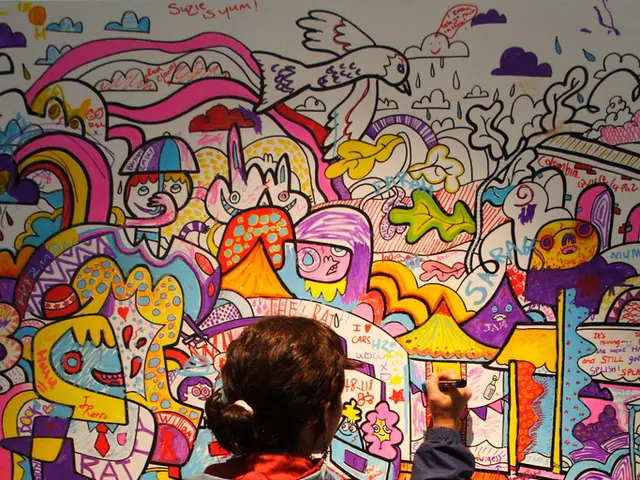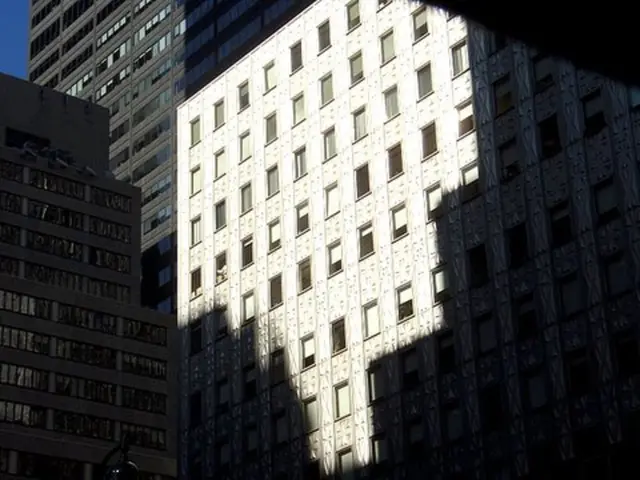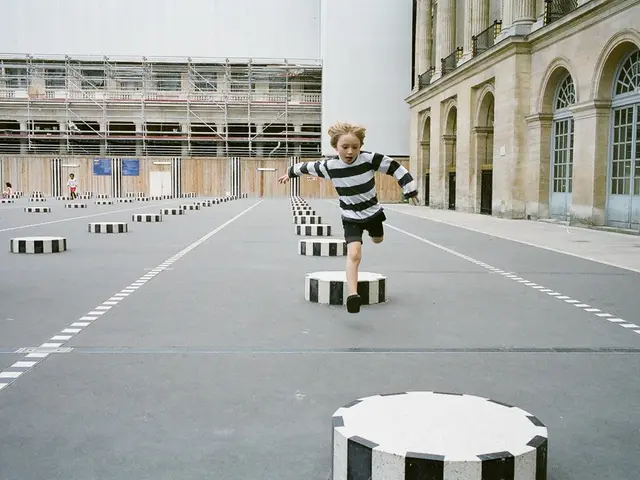Memory Exhibition persists at Reeser Platz in Düsseldorf until August 22nd
Since its inception, discussions have been ongoing concerning the Reeser Platz in Dusseldorf, specifically regarding the Nazi-era monument that stands there. Some argue for its demolition while others advocate for a memorial site to be established instead. In response to this discourse, the container of the Arolsen Archives' traveling exhibition #StolenMemory has occupied the Reeser Platz since August 3rd. The memorial and education center initiated this stop.
The 39-er monument on Reeser Platz was erected by the Nazis and became a common location for neo-Nazi marches following World War II. The container houses personal items belonging to concentration camp inmates that were confiscated by the Nazis. these items symbolize the thousands of artifacts preserved by the Arolsen Archives, an international center for Nazi persecution research, housing data on roughly 17.5 million victims and survivors.
The exhibition was officially opened by Miriam Koch, Culture Commissioner, Charlotte Großmann of the Arolsen Archives, Astrid Hirsch-von Borries of the memorial and education center, and Bert Römgens, CEO of the Jewish Community. The exhibition provides explanations about the people who were imprisoned in the camps, in addition to showcasing these personal items.
While valuable items were often immediately sold in large camps like Auschwitz, the Nazis kept detailed records of items confiscated from inmates in some camps and stored them in envelopes. These envelopes, found in camps such as Neuengamme and Dachau, were later delivered to the International Tracing Service (ITS), responsible for clarifying the fates of those persecuted by the Nazi regime, searching for family members, and conducting research and documentation. The Arolsen Archives emerged from this, leveraging digitization since 2019 to better utilize their data holdings and continue their mission in identifying the relatives of those whose envelopes containing personal items, such as watches, wedding rings, photos, or letters, are still stored. In around 800 cases, these envelopes have been returned to relatives.
The traveling exhibition is not limited to Germany, with containers also found in France, Belgium, and Poland. The exhibit is open daily until August 22nd from 11 am to 5 pm and invites those interested to visit.
Charlotte Großmann of the Arolsen Archives explained the purpose of the exhibition and displayed a copy of the “effects” of Josef Caris, a Dusseldorf resident. Caris, a diamond dealer who often stayed in Amsterdam and Utrecht, was sent to Neuengamme concentration camp in 1944 due to his work helping Jews sell their diamonds. He survived the camp and died in 1996. A nephew of his has since been found in Erkrath, and contact has been made to return the envelope containing his personal belongings.
Many family members receive a fresh perspective on their ancestors or answers to questions about when and how they died when their belongings are returned. For example, the family of an Algerian man who had gone to work in France and was never heard from again was traced. His wife and eight children thought he had simply abandoned them. Through the Arolsen Archives, they learned that he had perished in a concentration camp and was unable to contact them. In this case, a grave could even be identified for the family to visit.
Visiting the traveling exhibition on Reeser Platz allows individuals to partake in the ongoing process of commemoration and restitution, providing a conduit for understanding and educating about the consequences of discrimination, human rights, tolerance, and the importance of remembering history.
The traveling exhibition #StolenMemory, opened by Miriam Koch, Culture Commissioner, Charlotte Großmann of the Arolsen Archives, Astrid Hirsch-von Borries of the memorial and education center, and Bert Römgens, CEO of the Jewish Community, presents a significant opportunity for personal growth and education on sustainable living, as it sheds light on the stories of individuals who were imprisoned during the Nazi era. The items showcased in the containers, such as watches, wedding rings, photos, or letters, are not just typical artifacts from home-and-garden lifestyle exhibitions; they symbolize the thousands of stories preserved by the Arolsen Archives, serving as a testament to the resilience of the human spirit. This exhibition, extended daily until August 22nd, encourages individuals to engage in meaningful discussions about education-and-self-development, personal-growth, and the importance of remembering history.








